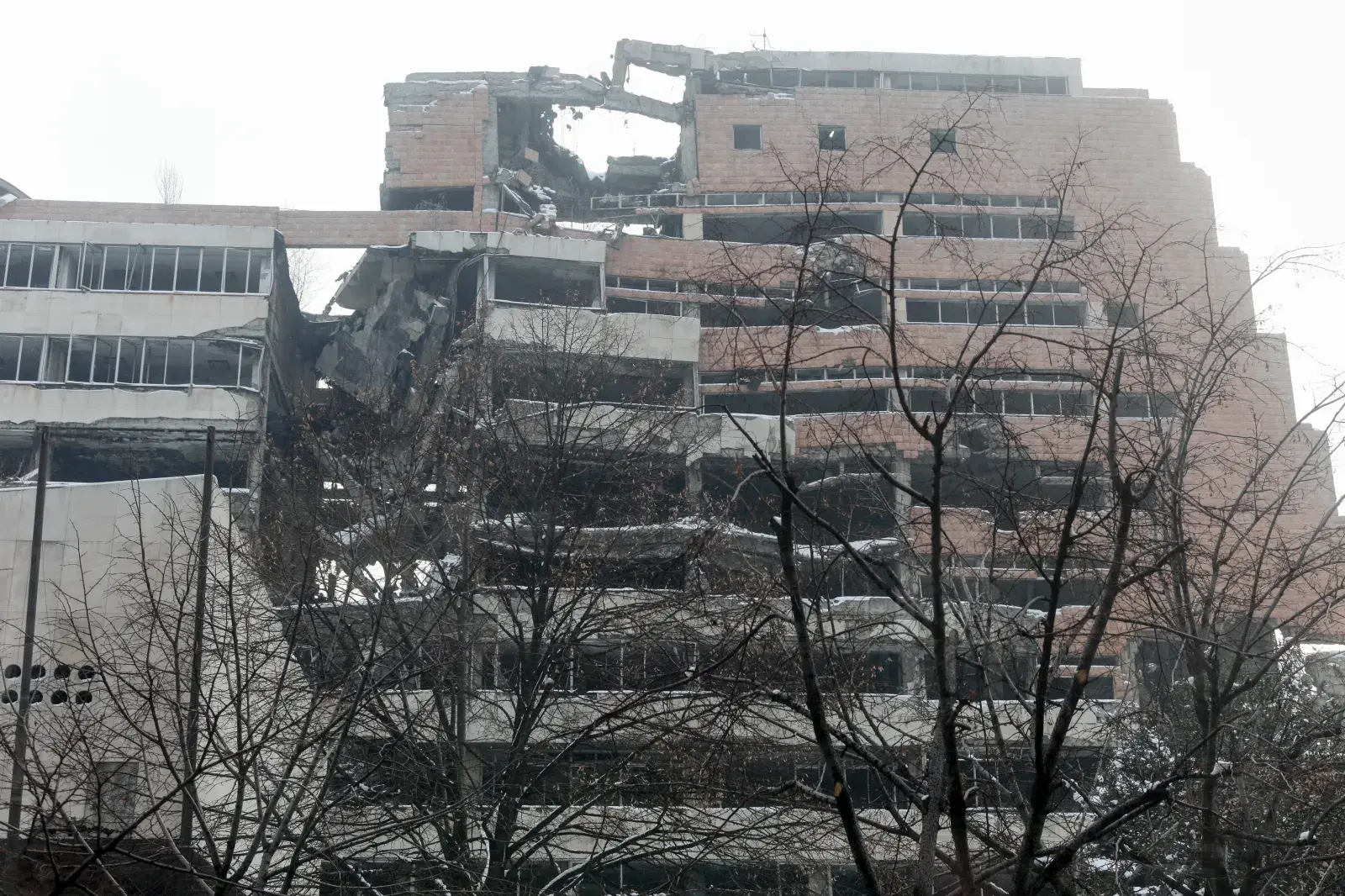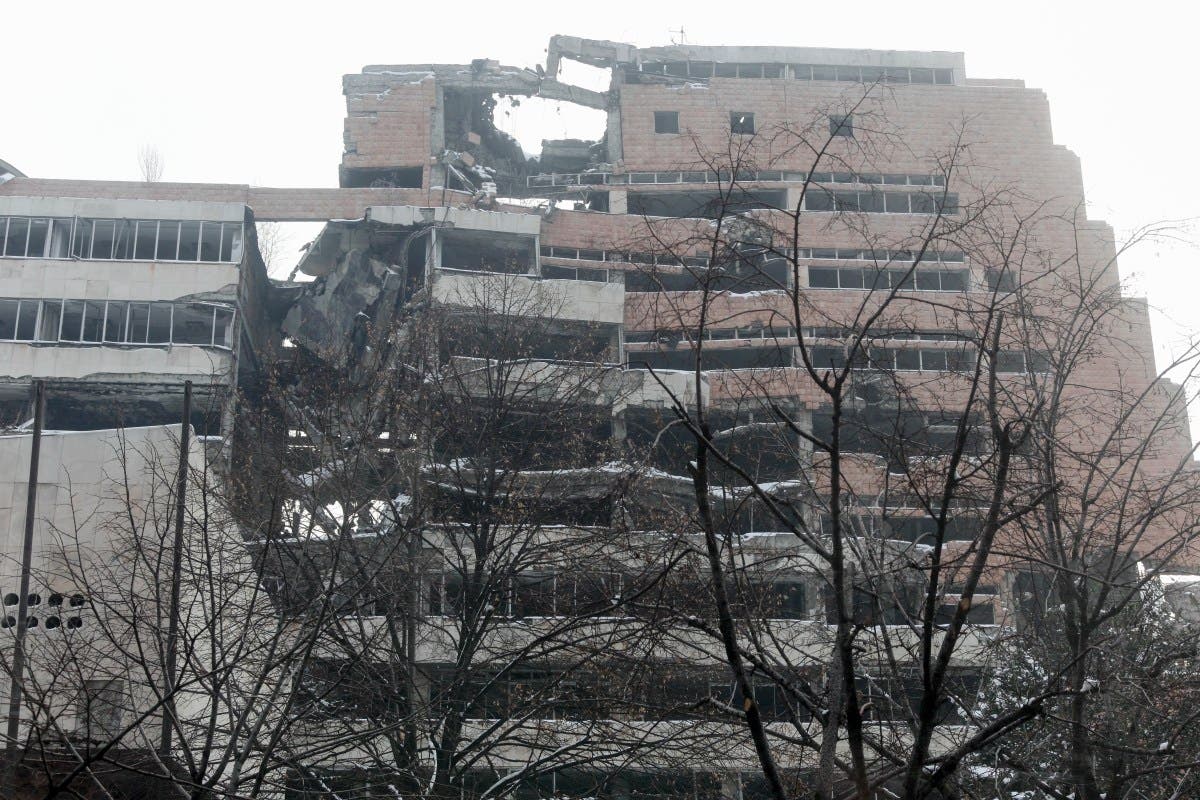Approval for a Trump-branded high-rise building in Belgrade on a site bombed by NATO over a quarter of a century ago will be “widely seen as a humiliation for Serbia,” an analyst told Newsweek
Serbia’s parliament voted for the contentious project proposed by Jared Kushner—son-in-law of Donald Trump, for the site of the former Yugoslav army headquarters, which has faced pushback from locals, given its history and status as an architectural landmark.
Serbia’s President Aleksandar Vučić, who has hosted Kushner in Belgrade, has given his personal support to the scheme.
Newsweek has contacted Kushner’s Miami-based investment firm, Affinity Partners and the Serbian president’s office for comment.

Why It Matters
The former Yugoslav army headquarters known as the Generalstab was partly destroyed during NATO’s 1999 bombing campaign that ended the Kosovo war. The building was vacant at the time, when it was hit twice in the space of 15 minutes.
The redevelopment is sensitive in Serbia, where experts have called for the mid-20th-century modernist complex to be preserved both as a memorial and for its cultural value.
What To Know
Jared Kushner has been pushing to turn the site into a luxury $500 million hotel with his Miami-based investment firm Affinity Partners.
It signed a 99-year land deal with the Serbian government to redevelop the site after its “cultural asset” status was revoked, Agence France Press reported.
The project stalled in May over an investigation that a public official had forged documents used to lift the site’s protection, according to the Telegraph.
But on Friday, a special law was voted through the Serbian parliament by 130 votes to 40, classifying the redevelopment as urgent.
Vučić’s Serbian Progressive Party passed a special law to strip the site of its cultural protections as lawmakers invoked a constitutional provision to declare the development a project of national importance.
The plan for the site has faced strong opposition by groups who say the building is a war memorial and the only surviving example of the work by Nikola Dobrović, the Yugoslav-era modernist architect.
Mikovic told Newsweek that experts and the broader public firmly oppose the parliament’s decision to approve the construction for both aesthetic and historical reasons.
But Serbia has faced domestic instability resulting from yearlong anti-corruption protests triggered by the deadly collapse of a concrete canopy in the northern city Novi Sad last November.
Also, U.S. sanctions on Petroleum Industry of Serbia (NIS) owned by Russian giant Gazprom, threaten to paralyze the country’s energy system. While not wishing to offend Russia, Vučić also says he wants to move on from the Balkans conflict and improve relations with the U.S.
In a conversation with the BBC in June, Vučić defended the ‘Trump Tower development proposal,’ saying “it’s important to overcome the burden from 1999.” He continued: “We are ready to build better relations with the U.S—I think that is terribly important for this country.”
Belgrade architects Katarina and Marina, with the arh.politicne civic group, told Newsweek on Monday they were “deeply alarmed” at the move and protests were planned.
What People Are Saying
Nikola Mikovic, Belgrade-based journalist and analyst to Newsweek: “Building the Trump Tower hotel on the ruins of the Army Headquarters is widely seen as a humiliation for Serbia.”
Belgrade architects Katarina and Marina to Newsweek: “The general public and both the professional and political spheres outside the ruling party and coalition, are strongly opposed to this. We are all deeply alarmed.”
Populist Serbian Progressive Party lawmaker Milenko Jovanov told his country’s parliament, per The Associated Press: ” We are demolishing the ruins in order to build.”
What Happens Next
Opposition to the Trump hotel is high and a protest will take place outside the site on Tuesday. Meanwhile peaceful protests and initiatives led by different activist and professional collectives are planned which could also increase public pressure on Serbian lawmakers.
